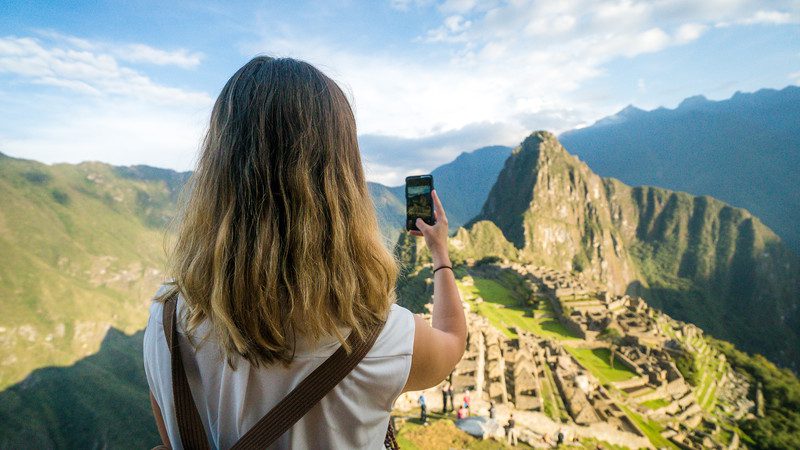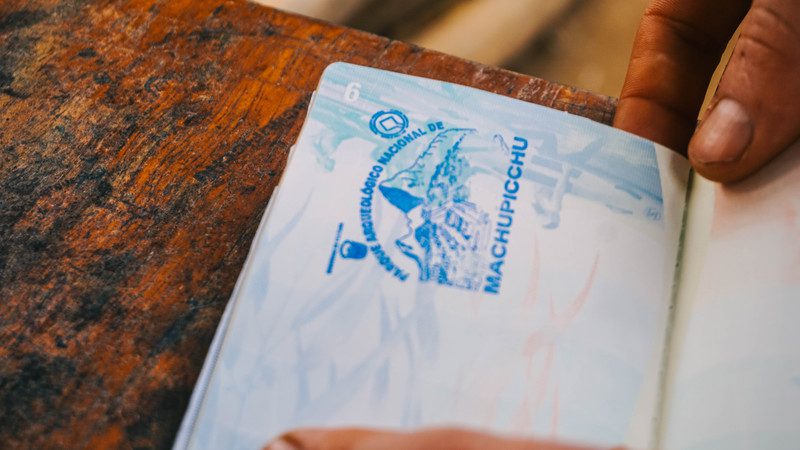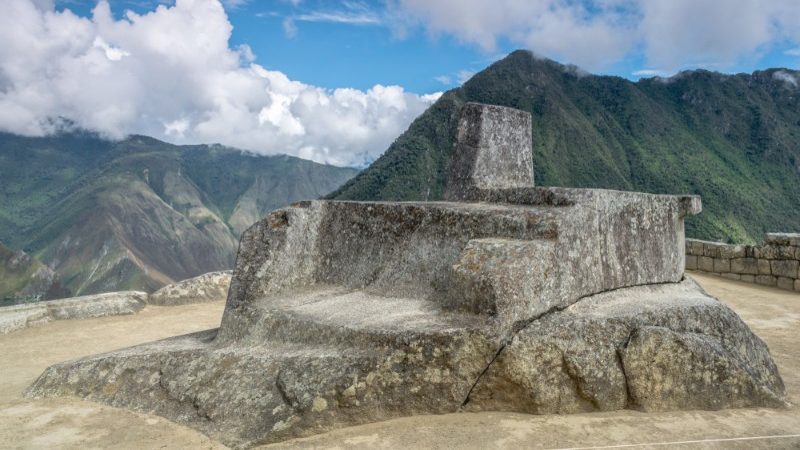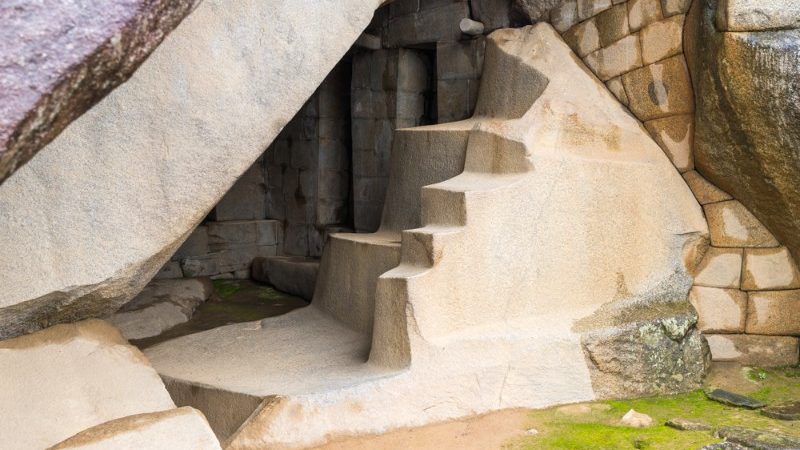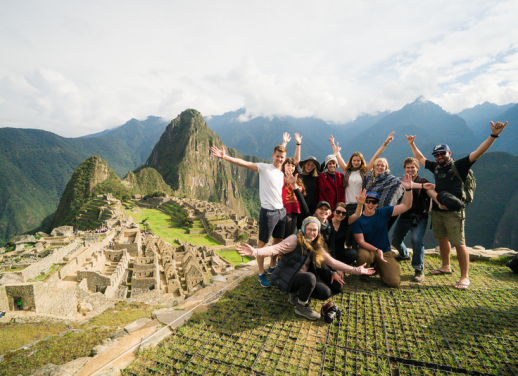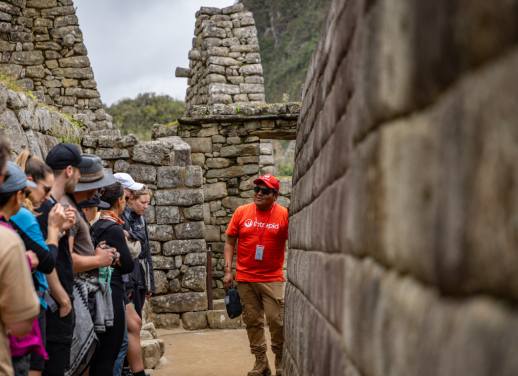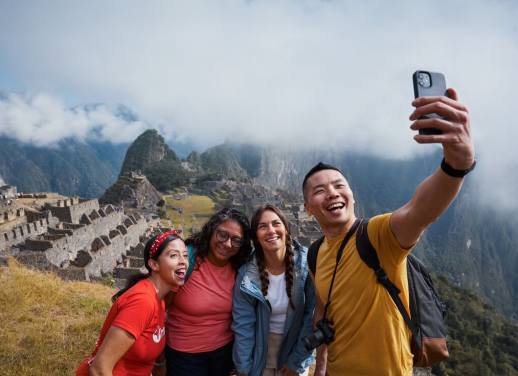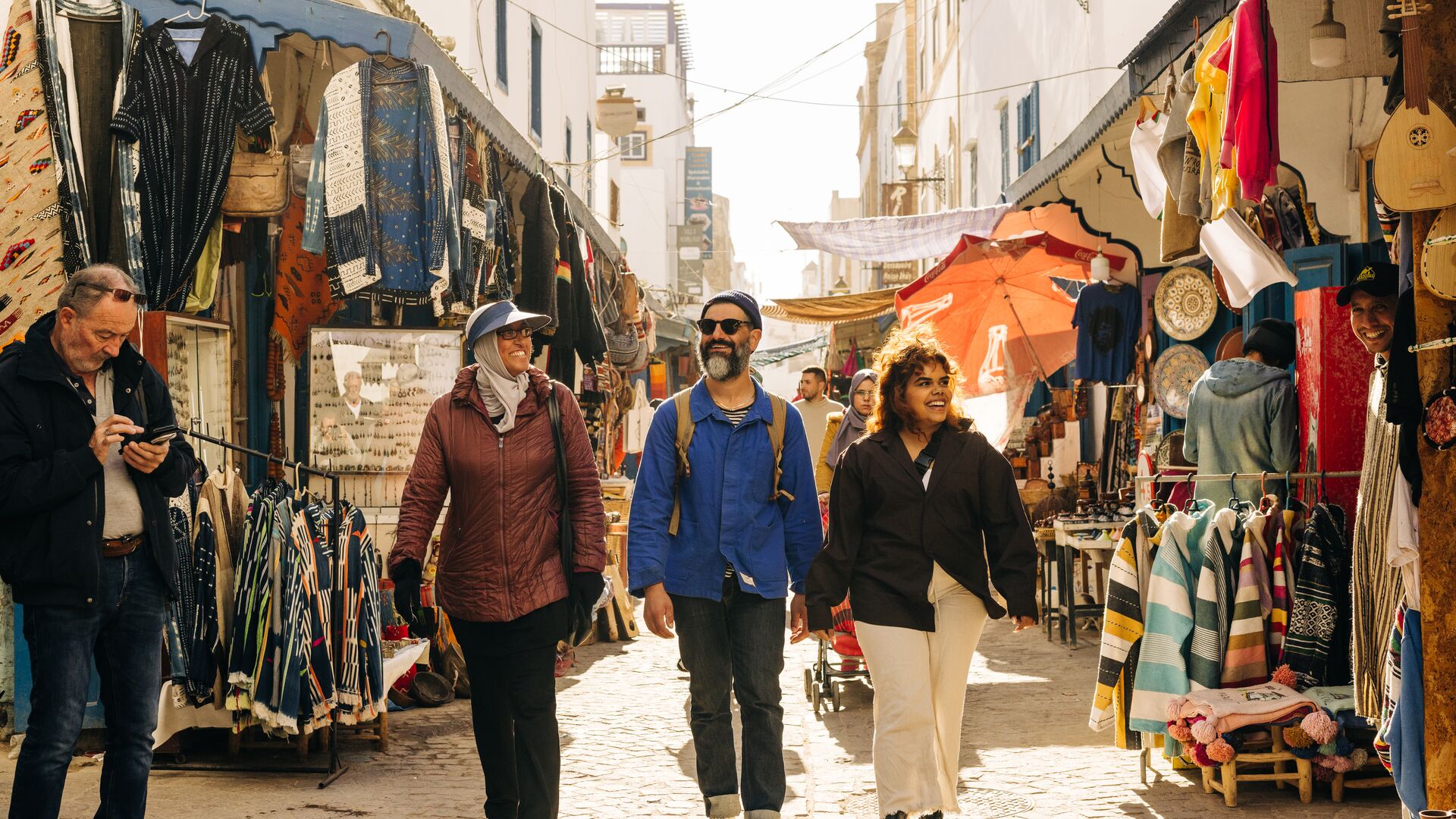There’s a lot of ground to cover on a visit to the majestic site of Machu Picchu.
The ruins of the ancient citadel extend through an area of 326 square kilometres (126 square miles). It can take around half a day to explore. Having a knowledgeable guide helps to explain each section of the ancient ruins and learn about the history of the Incas but there’s another reason to get a guide. Peru’s new rules have created a game changer in accessing the site on your own.
New regulations on having a guide
New regulations (introduced by the Peruvian Ministry of Culture in July 2017 ) state that it’s now mandatory for visitors to have an accredited tourist guide on their first visit. On the second visit, you need to present your first ticket to be allowed entry on your own.
RELATED: VISITING MACHU PICCHU? HERE’S HOW TO SEE THE HIGHLIGHTS IN UNDER ONE DAY
Here are a few of the main sites you can expect to see inside the grounds of Machu Picchu.
Machu Picchu’s main entrance
For those arriving at the front entrance of the site by bus (if you’re not hiking the Inca Trail) this is the main starting point before entering Machu Picchu. A good tip to know: you can get a Machu Picchu stamp added to your passport at the front office as you’re arriving or leaving the site.
Intihuatana stone
The Intihuatana stone is an ancient sundial carefully carved to consist of four sides, a wide pillar and pedestal standing 1.8 metres (6 feet) tall. It was used as an astrological clock and is associated with the Inca calendar. The stone also played an important role in religious ceremonies.
The Sun Gate
A spectacular entrance witnessed by trekkers finishing the Inca Trail. Day trippers to Machu Picchu won’t miss out with the option to do the two-hour return hike. It is believed that Sun Gate was a security check point for those entering the ancient city and offers sweeping views over the site of Machu Picchu.
CONSIDERING HIKING TO MACHU PICCHU? CHECK OUT INTREPID’S SMALL GROUP TRIPS
Temple of the Sun
From what is known of the Inca civilisation, only those who were members of the elite or considered as highly ranked in the religious order were allowed access to the Temple of the Sun. A place of worship – the temple has an elliptical design like the sun temple found in the old Inca capital of Cusco.
Llamas and alpacas
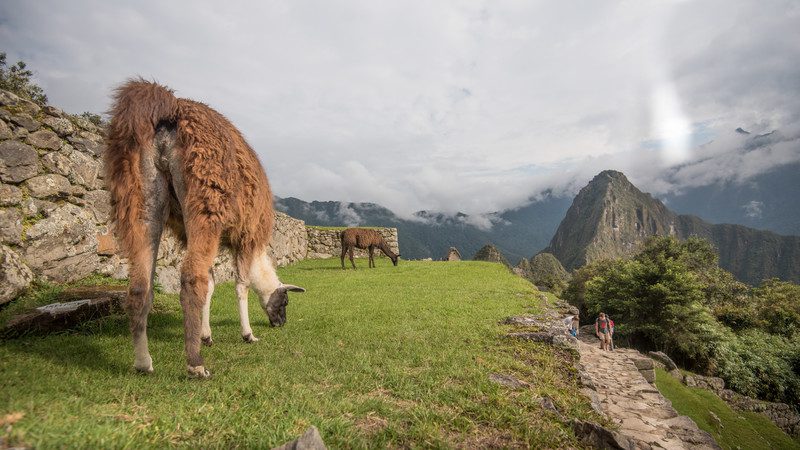
Photo by Pat O’Neill
These furry photo-bombing cuties are easy to spot and have sky-rocketed into the social streams of public popularity. Llamas are related to the camel family and grow up to twice the size of an alpaca. They were important resources for the Incas – not having other domesticated animals such as horses, goats or sheep to rely on. See if you can spot the difference between a llama and alpaca while on your trip in Peru.
Royal Tomb
The natural cave of the Royal Tomb can be found at the base of the Temple of the Sun. Archaeologists suggest the site was used as a final resting place for the royal family, although no evidence of mummies were ever found.
SUBSCRIBE TO OUR NEWSLETTER FOR THE LATEST TRAVEL OFFERS, NEWS AND COMPETITIONS
Agricultural area
Machu Picchu is roughly divided into an urban sector and agricultural sector, suggesting to archaeologists the area was inhabited by humans and intended for long-term use. Upon arriving, you will notice a series of terraces built into the hillside; these were used for crop production during the Inca period.
Huayna Picchu
Huayna Picchu (also known as Wayna Pichu or Wayna Pikchu) means ‘young peak’ in Quechua. Access to the top is known as the ‘stairs of death’ – a climb capped at 400 people a day reaching the Temple of the Moon. The hair-raising climb takes about three hours return trip. Intrepid does not assist travellers in reaching Huayna Picchu, as safety can not be guaranteed.
Just take it all in
The Incas were advanced in astronomy and their building achievements without metal tools or mortar are recognised as an engineering feat. Take your time at the site – it’s the little details that will leave a lasting impression. If you ware interested in reading more about this amazing site, our facts of Machu Picchu have you covered.
Ready for Machu Picchu? Check out Intrepid’s range of small group adventure trips to Peru.
Feature image by Stephen Parry

